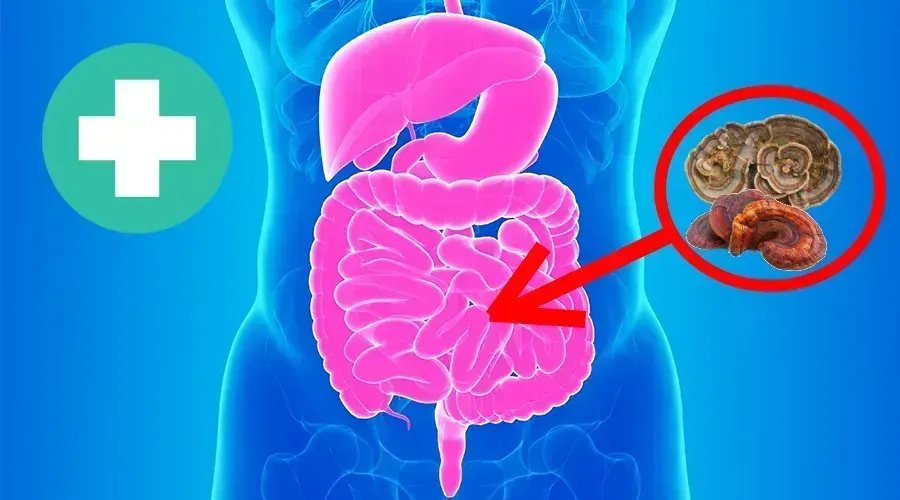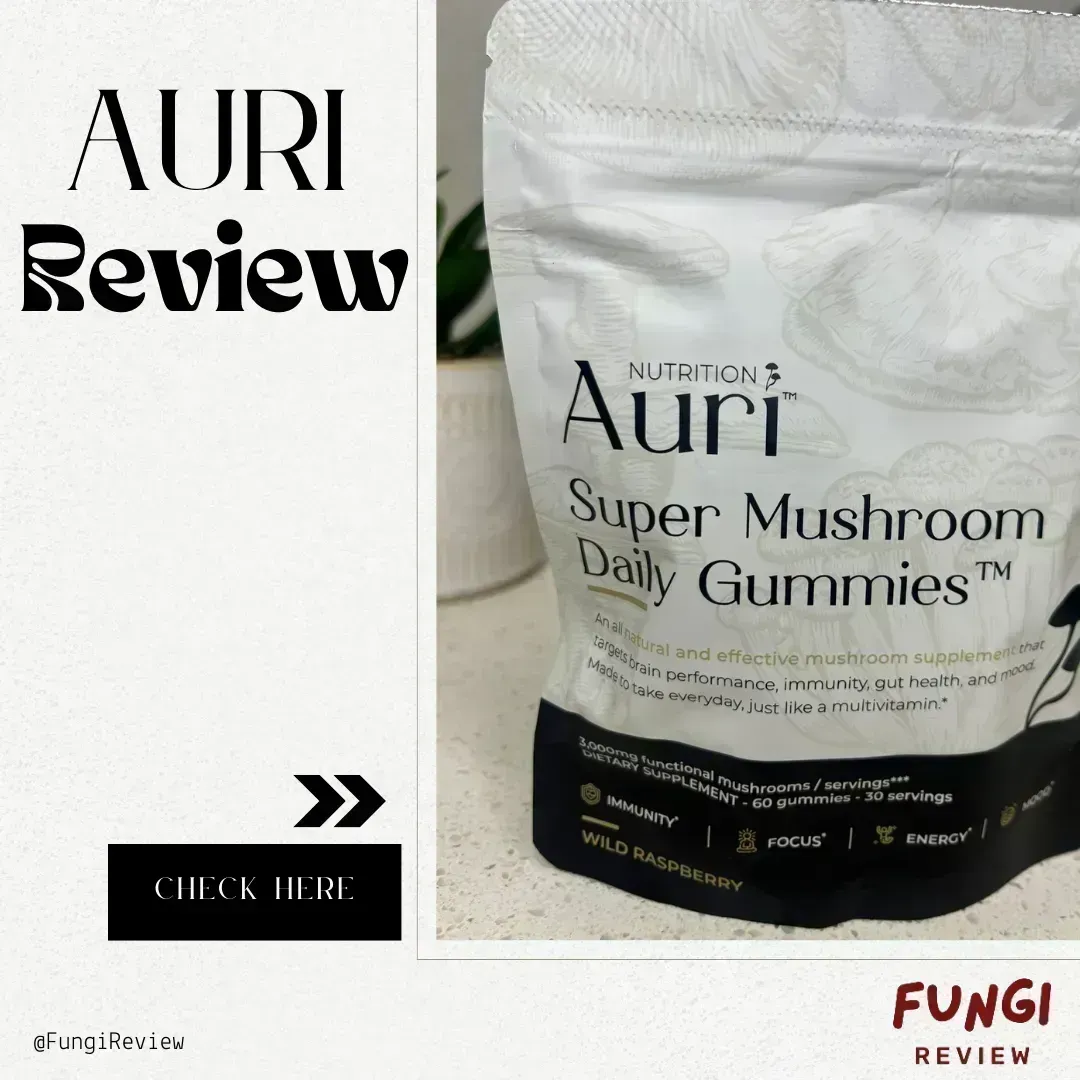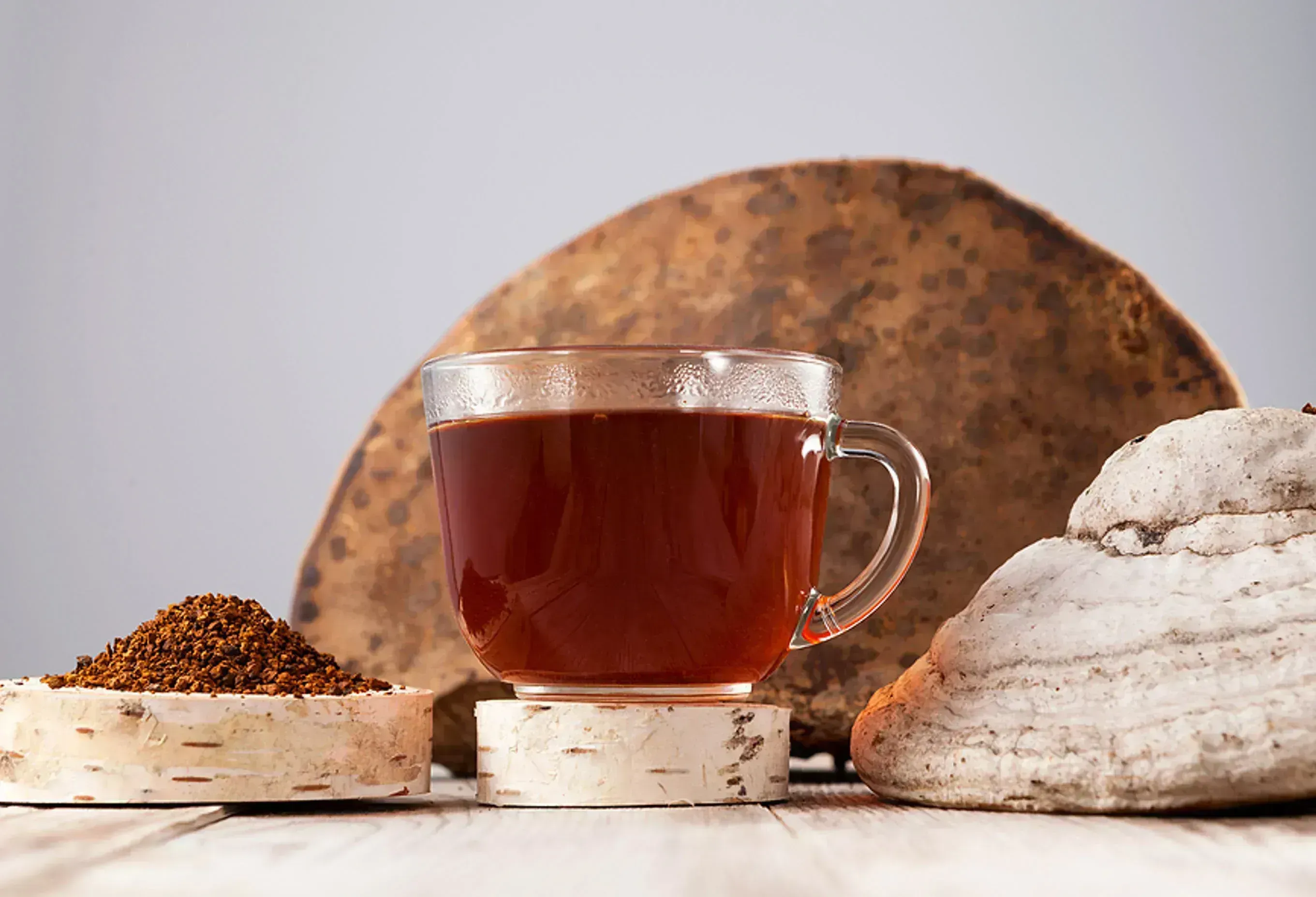The gut is a powerful ally and you may not even know the challeges it faces each day, about 70% of your entire immune system resides in your gut. So this means that your gut is constantly dealing with the outside world keeping you healthy. In recent years, mushrooms have emerged as powerful allies in holistic health. With their ancient use in traditional medicine and recent research uncovering numerous benefits, mushrooms have captivated wellness enthusiasts worldwide. One area where certain mushrooms particularly shine is in supporting gut health. But which mushrooms stand out for their gut-supporting properties? Fungi Review will explore the top choices, backed by research, to help you cultivate a balanced and thriving digestive system.
Understanding the Gut-Microbiome-Mushroom Connection
Your gut is home to trillions of microbes that play a crucial role in your digestion, immunity, mood, and even brain health. An imbalanced gut microbiome can lead to digestive discomfort, inflammation, and weakened immunity. Certain mushrooms contain bioactive compounds like polysaccharides and beta-glucans that nourish beneficial gut microbiota, support digestion, and help reduce gut inflammation.
What is Gut Health?
Gut health refers to the balance and diversity of the trillions of microorganisms residing in your gastrointestinal tract, collectively known as the gut microbiome. A healthy gut microbiome is crucial for maintaining a robust immune system, regulating digestion, and even producing essential vitamins. It also plays a pivotal role in preserving the integrity of the intestinal mucosal barrier, which acts as a gatekeeper, preventing harmful toxins and pathogens from entering the bloodstream.
When gut health is compromised, it can lead to a myriad of health issues, including digestive disorders, autoimmune diseases, and mental health challenges. Factors such as a high-fat diet, chronic stress, antibiotic use, and insufficient dietary fiber can disrupt the delicate balance of the gut microbiome, leading to poor gut health. By understanding and nurturing your gut health, you can support your overall well-being and prevent various health problems.
The Importance of Gut Microbiota
The gut microbiota is a complex and dynamic ecosystem composed of trillions of microorganisms, including bacteria, viruses, fungi, and other microbes. This intricate community plays a vital role in maintaining our overall health. Here are some key functions of the gut microbiota:
-
Regulating the Immune System: The gut microbiota helps regulate the immune system by producing antibodies and activating immune cells, ensuring a balanced immune response.
-
Producing Vitamins: Certain gut bacteria synthesize essential vitamins like vitamin K and biotin, which are crucial for maintaining healthy skin, hair, and nails.
-
Maintaining the Intestinal Mucosal Barrier: The gut microbiota supports the integrity of the intestinal mucosal barrier, preventing the entry of toxins and pathogens into the bloodstream.
-
Regulating Lipid Metabolism: The gut microbiota plays a role in lipid metabolism, helping to maintain healthy cholesterol levels and reduce the risk of cardiovascular diseases.
By fostering a healthy gut microbiota, you can enhance your immune function, support nutrient absorption, and protect against various health issues.
How Mushrooms Support Gut Health and the Immune System
Mushrooms have a fascinating impact on gut health due to their unique bioactive compounds, including beta-glucans, polysaccharides, and antioxidants. These compounds serve as prebiotics, which means they feed the beneficial bacteria in your gut, helping to balance your microbiome. A balanced gut microbiome can lead to improved digestion, reduced inflammation, and stronger immune function.
Moreover, the nutrients in mushrooms play a critical role in immune system regulation, contributing to various physiological processes that ensure optimal body function.
Certain mushrooms also help protect the gut lining by reducing oxidative stress and inflammation, which can be especially beneficial for those dealing with digestive issues like IBS or gut sensitivity. Additionally, adaptogenic mushrooms, such as Reishi, may help counteract stress, which is known to impact gut health negatively.
Top Mushrooms for Gut Health
1. Turkey Tail (Trametes versicolor)
Best for: Gut microbiome balance and immune support
Turkey Tail is famous for its high beta-glucan content, a fiber that promotes the growth of beneficial gut microbiota. It has been shown to support immune function, reduce inflammation, and improve digestion by enhancing the gut’s microbiome diversity. Studies suggest that compounds in Turkey Tail may help boost levels of beneficial bacteria like Bifidobacterium and Lactobacillus, which can crowd out harmful microbes.
Pro tip: Try Turkey Tail as a daily supplement or add Turkey Tail powder to your smoothie for an easy, gut-healthy addition to your routine.
2. Reishi (Ganoderma lucidum)
Best for: Reducing gut inflammation and stress-related digestive issues
Known as the “mushroom of immortality,” Reishi has a long history of use in traditional medicine, particularly for its calming effects on the body and mind. Reishi’s polysaccharides have shown anti-inflammatory properties, which can help soothe an irritated gut lining. Additionally, Reishi contributes to immune system regulation by providing essential nutrients that support various physiological processes. Reishi is also an adaptogen, meaning it can help the body better handle stress—a significant factor in gut health.
Pro tip: A warm Reishi tea before bedtime can not only promote better sleep but also support your digestive system by reducing stress-induced inflammation.
3. Lion’s Mane (Hericium erinaceus)
Best for: Gut-brain connection and overall digestive health
Lion’s Mane has gained popularity for its cognitive benefits, but it also holds promise for gut health, thanks to its neuroprotective and anti-inflammatory compounds. Emerging research highlights Lion’s Mane’s potential to protect the lining of the stomach and intestines, which is especially beneficial for individuals with gut sensitivity or mild digestive issues. The mushroom’s ability to support the gut-brain axis may also benefit those experiencing stress-related digestive discomfort. Additionally, Lion’s Mane supports overall human health by enhancing the production of short-chain fatty acids (SCFAs), improving the intestinal mucosal barrier, and influencing lipid metabolism.
Pro tip: Add Lion’s Mane powder to your morning coffee or smoothie to support both gut and brain health as you start your day.
4. Chaga (Inonotus obliquus)
Best for: Antioxidant support and gut inflammation
Chaga is revered for its powerful antioxidant properties. Rich in polyphenols and polysaccharides, Chaga has been used in traditional Siberian medicine to aid digestion and reduce gastrointestinal inflammation. It’s particularly beneficial for those with inflammatory digestive conditions, as it can help protect the gut lining from oxidative stress and support overall gut health. Additionally, Chaga supports the intestinal microbiota, which plays a crucial role in influencing immune function and maintaining a balanced immune system.
Pro tip: Chaga powder can be added to tea, coffee, or even oatmeal to boost antioxidant intake and support gut health.
5. Maitake (Grifola frondosa)
Best for: Fiber and prebiotic support
Maitake, also known as “hen of the woods,” is packed with polysaccharides that act as prebiotics, feeding beneficial gut bacteria and promoting a healthy microbiome. These polysaccharides stimulate the growth of beneficial gut microbiota, which in turn promotes overall health and resilience of the immune system. Maitake can also help balance blood sugar levels, which plays a role in maintaining a healthy digestive system. This mushroom is excellent for individuals who want a mild but effective gut health boost.
Pro tip: Add Maitake to your meals or consider it in supplement form for an easy, digestive-friendly addition to your diet.
Comparing Mushroom Forms for Gut Health
Mushrooms are available in various forms, each with unique benefits for gut health. Here’s a breakdown:
-
Whole Mushrooms: Fresh or dried whole mushrooms provide a natural source of fiber and nutrients, ideal for culinary use. Eating whole mushrooms can be an enjoyable way to incorporate prebiotics into your diet, though it may be challenging to get therapeutic doses this way.
-
Extracts and Powders: These concentrated forms are typically more potent and allow you to consume higher doses in smaller quantities. Extracts may come as water or alcohol-based tinctures, focusing on different beneficial compounds. Powders are versatile and easy to add to smoothies, teas, or recipes.
-
Capsules and Supplements: For convenience and controlled dosages, capsules or tablets offer a great option. Many supplements are standardized, so you get consistent levels of active compounds, making them ideal for people seeking specific therapeutic benefits.
Each form has its place, depending on your lifestyle and gut health needs. For example, extracts and powders offer flexibility and high potency, while capsules make daily use effortless. Additionally, these different forms of mushrooms contribute to overall human health by enhancing the production of short-chain fatty acids (SCFAs), improving the intestinal mucosal barrier, and influencing lipid metabolism.
Related Blog: Mushroom Extract vs Mushroom Powder Which One Is Right For You?
Scientific Studies on Mushrooms and Gut Health
Research on mushrooms and gut health is continually evolving, with exciting findings highlighting the potential of these fungi. Here are a few studies that showcase how specific mushrooms benefit the gut:
-
Turkey Tail: Studies have shown that Turkey Tail promotes the growth of beneficial gut bacteria, such as Bifidobacterium and Lactobacillus. These bacteria support digestion, enhance immune function, and contribute to a balanced microbiome. One study found that Turkey Tail polysaccharides helped increase beneficial bacteria levels within weeks.
-
Reishi: Reishi’s polysaccharides and triterpenes have been shown to reduce inflammation in the digestive tract, which may help alleviate gut discomfort and protect the gut lining. A 2020 study found that Reishi supplementation reduced markers of inflammation in mice, indicating promise for humans dealing with gut-related inflammation.
-
Lion’s Mane: Known for its cognitive benefits, Lion’s Mane also supports the gut-brain axis, a key connection between mental health and digestion. In animal studies, Lion’s Mane was shown to protect the gut lining from damage while promoting gut microbiome health, suggesting potential benefits for those dealing with stress-related digestive issues.
These studies underscore the role of mushrooms in maintaining a balanced gut microbiome and suggest that regular mushroom consumption could be a natural strategy to support digestive health. Additionally, studies have shown that mushrooms contribute to immune system regulation, highlighting their importance in overall body function.
How to Choose the Right Mushroom Supplement for Gut Health
When selecting a mushroom supplement, consider the following:
-
Quality: Look for organic, non-GMO, and third-party-tested options to ensure purity and potency.
-
Form: Some prefer powders or capsules, while others enjoy teas or tinctures. Choose the form that best suits your lifestyle.
-
Combination Supplements: Some blends combine multiple mushrooms to deliver broader benefits, ideal for individuals seeking comprehensive gut support. Additionally, choose supplements that support the intestinal microbiota to enhance gut health and immune function.
Choosing The Right Mushroom Brand:
It’s important to remember that mushroom supplements are still not FDA-approved and are sold as dietary supplements. Therefore, that leaves the consumer responsible for doing their own thorough research on brands before giving them a try. Sadly, as the mushroom niche gains more popularity, more shady brands come out and use cheaper growing methods that could lead to negative side effects. Remember to look for Third-party testing, organically grown, location, and other factors before choosing the brand for you. Although we would recommend both products based on our own experience and research found, it’s important the consumer researches a brand before giving it a try or speaking to a doctor. Check out our other blogs on researching mushroom brands and how to read third-party testing at the Fungi Purity & Potency Guide for more info on this.
Final Thoughts
Adding the right mushrooms to your wellness routine could be the key to supporting a healthy gut and overall well-being. From immune-boosting Turkey Tail to calming Reishi and antioxidant-rich Chaga, each mushroom offers unique benefits for gut health. Remember, consistency is key—daily incorporation, whether through teas, powders, or supplements, will yield the best results over time. These mushrooms also contribute to overall human health by enhancing the production of short-chain fatty acids (SCFAs), improving the intestinal mucosal barrier, and influencing lipid metabolism.
Whether you’re managing specific digestive issues or simply looking to enhance your gut health, these mushrooms can be a valuable addition to your wellness journey. For more mushroom-based insights, be sure to explore our other in-depth guides and reviews!





